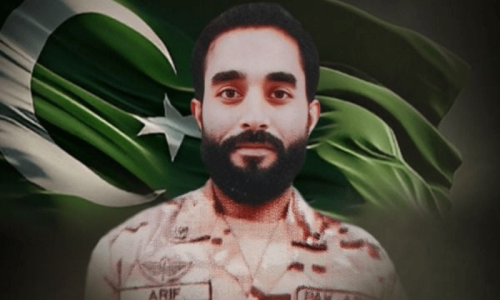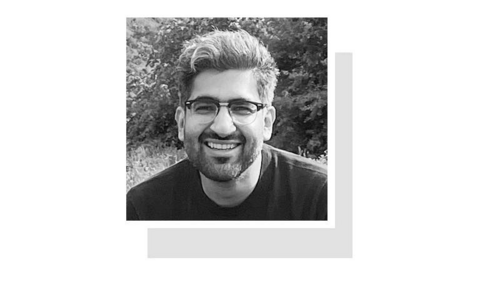For the vast majority of young men and women in Pakistan, arranged marriages are still the only way for couples to tie the knot. In a largely segregated society, there are few occasions and venues for boys and girls to meet and get to know each other. But the system works well enough as most families have a vast network of relatives, friends and acquaintances, and clan and biradari connections are called upon when needed.
However, these links break down in the diaspora of Pakistani communities abroad. This is especially true when the young have grown up in a society where almost every educational and workplace is shared by men and women, and segregation is limited to a few old-fashioned men's clubs. But for Muslims, this easy mingling of the sexes does not make it any easier to meet a life partner.
The younger generation of Pakistanis in Britain, for example, have imbibed values that belong neither to their parents, nor to the host community. Caught in between the two, they seek partners who are both 'modern', and yet hold fast to their traditional culture. And since their parents' network in Britain is limited, young people often have to fend for themselves in a tricky marriage market. Also, as not many of them go to clubs, pubs or singles bars, they do not have the same opportunity to meet people that other Brits take for granted.
Compounding the problem for educated, professional Muslim women is the fact that their male counterparts often marry young, so when the women are successful and hitting 30, they find it increasingly tough to find the kind of partners they seek.
Many websites address this problem, and carry profiles and photos of Muslim women seeking husbands. Here in cyberspace, the essentials of lonely lives are laid bare. Meet 'Kashmiri Kuri' 29, a qualified accountant, working in London for a large firm, she is 5' 3' tall, likes going to the movies and listening to music, and does not smoke. She is looking for a man who is good-looking and has a sense of humour. He should not wear a beard, but should not drink alcohol. Will she find this paragon, or will she succumb to family pressure and marry somebody from Mirpur through a match arranged by the family?
Far too many lives have been ruined by a mismatch of expectations. Young men from rural Pakistan, unfamiliar with the liberal values of the West and concepts like gender equality, expect their educated British wives to conform to the submissive role wives play in their home village. The young brides, having been born and brought up in an environment where women are equal, often cannot adjust to the demands made by their husbands. Such matches end up in divorce or a lifetime of miserable coexistence in the name of duty.
For many in the West, the only idea they have of Muslim marriages is in the form of headlines announcing yet another honour-killing. This is a common phenomenon where a Muslim girl is made the victim of her father's or brother's outrage at her refusal to accept their dictation about who she should marry. But these incidents are rare exceptions the majority community is largely ignorant of the problems young Muslims face in meeting Mr or Miss Right.
To address this issue, Channel 4 recently aired 'Muslim and Looking for Love', a documentary that examines the dilemma so many young Muslims face in Britain today. Directed and produced by the well-known London-based Pakistani director Faris Kermani, this is an occasionally painful scrutiny of lonely lives seeking love and companionship.
The film takes us to the Birmingham Central Mosque, where Mr Razzaq and Mr Haq are two of the more implausible matchmakers you are likely to encounter. Middle-aged and traditional, they maintain profiles of a thousand young men and women. Those seeking partners, often accompanied by their parents, are told about prospective spouses who, in the judgment of Mr Haq or Mr Razzaq, might fit the requirements.
A woman of Egyptian descent wants to meet somebody from her country who is educated and would make a good match. Highly qualified, she works for a re-insurance company in London and feels she is very eligible. After a long search, the matchmakers find Mo, somebody they feel who meets her requirements, and an introduction is arranged at the mosque. Here, the two young people talk, but sadly, Mo is too Westernised for her liking. He enjoys going to clubs, and admits to having a drink now and then; she prays five times a day, and feels she could not live with somebody who is not similarly observant of religious edicts.
Another successful young man comes to the marriage bureau with his mother, and is introduced to a possible match. Very attractive, she is educated and has a good job. Initially, the vibes between the two seem good, and they agree to meet again. At this meeting, she begins to have doubts, especially when he bombards her with emails, wanting to know more about her. They then meet for the third and last time with her cousins on a day in the country. Although they seem to enjoy each other's company, she is put off by the pressure he exerts to push things along. He appears to be in too much of a hurry to get married, while she wants to be sure that he is the right man for her. Finally, he confesses to the camera that he will have to go to Pakistan with his parents, and let them find a girl for him.
Tellingly, all the young Muslim women who appear in the film make it clear that they will only consider men who are British nationals. Clearly, they are all too aware of the pitfalls of marrying somebody who is unfamiliar with the values and attitudes they have grown up with. But although they expect to be treated as equals in a marriage, they have not yet got to the point where they can bring themselves to venture into the world of clubs and singles bars where other young men and women gather to meet prospective partners. Perhaps their children will, but this generation will still be going to Mr Haq and Mr Razzaq for help in meeting Mr Right.












































Dear visitor, the comments section is undergoing an overhaul and will return soon.